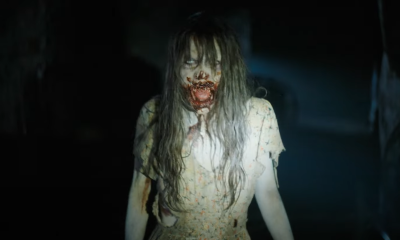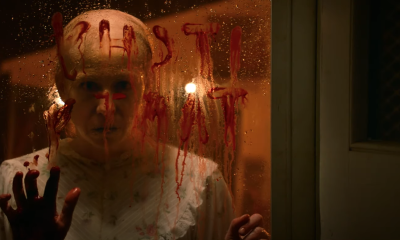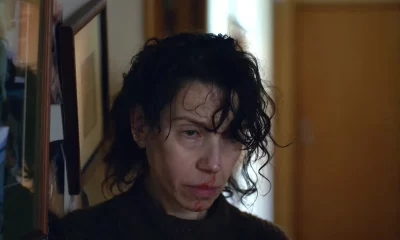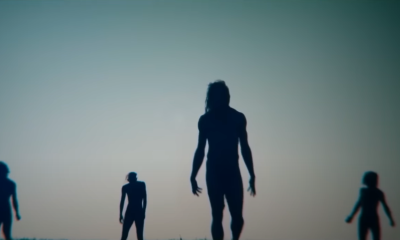Editorials
Why Do Men Hate Midsommar?
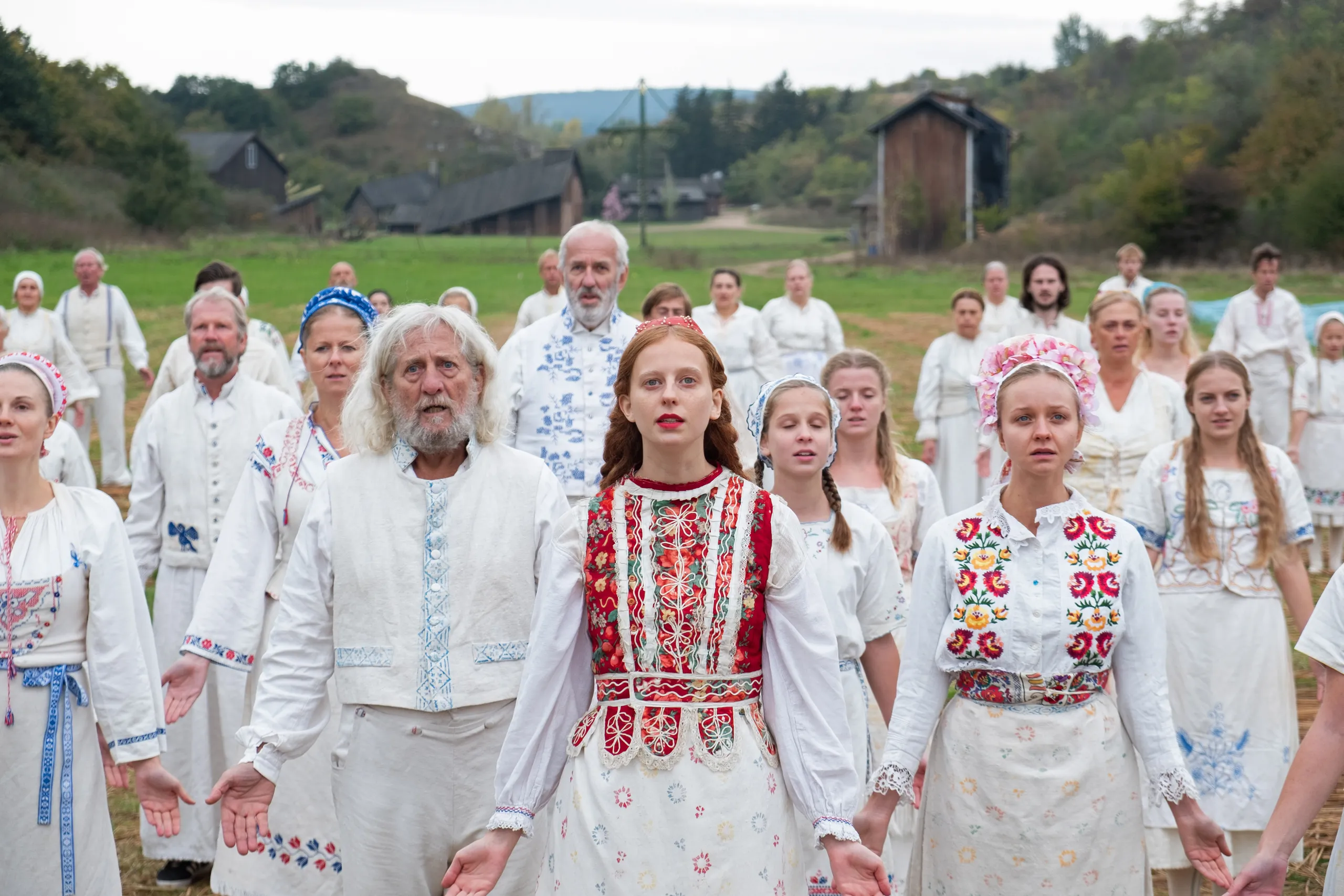
**SPOILERS FOR THE ENTIRE FILM**
When Ari Aster’s sophomore effort, Midsommar, hit theaters in the summer of 2019, it was met with the polarity many film lovers have come to expect from general audiences toward wide-release “art” films (I wouldn’t consider Midsommar an art film per se, but it’s not NOT art, right?) ever since The VVitch ushered in this phenomena in 2016. A small, ambitious indie is universally praised by critics on the festival circuit, amasses a large amount of online interest and hype, gets released by a major distributor (A24 being the company en vogue to watch out for nowadays), and then general audiences go to see it and hate it. It happens like clockwork several times a year, every year. Even in the era of Covid self-isolation when these films find their releases not in multiplexes, but on streaming services, the song remains the same. Interestingly though, as with all films released in the past decade of this ilk, Midsommar seemingly has just as many supporters who fight for it as vehemently as its detractors spew their hatred of it.
Of course, much of what follows is anecdotal evidence to be taken with a grain of salt, but from what I’ve observed in this meta-aspect of the film, by and large Midsommar’s fans seem to be women, while its haters tend to trend more toward the male side. It doesn’t take a rocket scientist to understand why women gravitate toward this film. I found myself muttering “good for her” throughout the final act during my first viewing, and all subsequent viewings beyond. Men being the majority of naysayers on this one though had me wondering “why?” (If at this point in the essay you feel inclined to say “well I liked/disliked that film and I am [insert gender identity here]”, then this clearly doesn’t apply to you. However, I think if you really do have that thought, maybe it actually does). So I rewatched the film again recently to attempt to find an answer…
An Admission of Self to Self
The first viewing I had of Midsommar, I found myself rooting outrageously for Dani. Her plight was more than familiar: experiencing continuous self-doubt due to the ambivalence of those you expect to return the love you have for them. A soul in limbo, lost and alone in a liminal state of being, searching for any semblance of self-worth, meaning, beaten down again and again by emotional and mental anguish, only looking for any lasting love and validation you can find but seemingly always coming up short. In many ways, this is the Human Condition — or perhaps the Millennial Condition. Dani is a universally relatable character, empathizing with her isn’t just part of experiencing the film, it’s second nature. My last viewing of the film, under the guise of the thesis stated a paragraph earlier, had a much more introspective impact on me than any I had previously. Dani was not the character that represented myself in this film. On the wake of my 32nd birthday, I came to the world-class bummer of a realization that I was, unequivocally and unfortunately, Christian.
Christian’s character is an interesting one for horror films, because he isn’t necessarily a bad boyfriend up-front, but he certainly isn’t a good one. His faults are not in some domestic violence streak or any sort of abuse. Christian is simply aloof, uncaring, void of empathy, and self-centered. I was Christian in previous relationships. Many of my male friends and peers were, too. Too many of them still are. Is this why those who cry boo and “it wasn’t THAT good” in regard to Midsommar in online forums and various media tend to trend toward being men? Did they see themselves in Christian and the reflection became too much to handle? Odds are, absolutely not. I am from a generation of men who idolized characters like Tyler Durden, Travis Bickle, and Patrick Bateman. Many of these men — my age — still idolize these characters. A whole swath of films satirizing toxic masculinity were misinterpreted by men in my generation not as a way not to be, but as a blueprint in How to Be A Man©.
In my early 20s, I was in the first Serious Relationship™ of my life, and by the time I was in my mid-20s, that relationship was over. I was told that I was the most selfish, toxic person my partner had ever met. I didn’t understand why. I thought I was giving. I thought I was caring. I went out of my way to help any and every person I could that needed the help. I was never abusive in any capacity; I never hit her or yelled at her, never made her do anything she was uncomfortable with. After I started going to therapy and practicing taking myself to task with introspection and change, I realized she was correct. I wasn’t a bad person, I was aloof and self-absorbed without even realizing it — I was Midsommar’s Christian. I wasn’t abusive, but my relationship had been riddled with microaggressions and nuances that upset my partner that I wasn’t even aware I was doing. This isn’t an excuse, but an admission of fault. Ignorance is never a valid escape option when facing criticism for one’s own actions. So, I promised myself I wouldn’t let this happen again.
In my late 20s, I entered into another Serious Relationship™, and while this one was much more volatile than the last, and we had many, many issues I will not disclose here, my hindsight allowed me the ability to take stock in the fact that while I had gotten better at my personal faults that led to the downfall of my past relationship, I still had a long way to go. At this point in my life, I had been going to therapy, albeit sporadically. I had been both diagnosed with and seeking medical help for Bipolar 2 Disorder. By all accounts, I wasn’t perfect, but I was growing and making an effort. Luckily, this partner was as perceptive as I was about her own faults, and although the relationship ultimately didn’t last, we both learned and grew from it, and we helped each other along the way.
Herein lies a dilemma with the film, the character of Christian, and Dani+Christian’s relationship: Christian made no effort to empathize with Dani’s emotional wants and needs, especially while she is in the throes of trauma and depression brought on by the death of her sister and parents in the opening act of the film. At worst, Christian seems annoyed by the mere existence of Dani and her emotional needs; at best, he’s oblivious. Christian exemplifies the faults present in many men (myself included), and he embodies the ideology that keeps these men from undergoing self-reflection, seeking any sort of therapy, or caring more about others than about themselves — a false inflation of self-worth.
The façade of being a well-adjusted, self-aware individual curtaining a necessary self-evaluation. Toxic masculinity dressed up as cool-guy nonchalance and pseudo-affectionate ambivalence to the needs and feelings of those who occupy his social circle — it’s not just his relationship he fails in, but his friendships as well. I can speak for many men when I say that a lot of us have fallen into this description at one point in our lives or another. The end-goal for all people, not just men, should be to become the best version of yourself that you can be. So why exactly is the spotlight on men nowadays?
A Lack of Reflection
In a study published by RTI International, only 11.2% of men sought out help for their mental health in 2019. The percentage tapers steadily down the further back you go. See the graph below for proof:
I can say without a shadow of a doubt, when I began to go to therapy and practice self-reflection, I became a better person. I felt better about myself. My peers seemed to feel better about my approach to all aspects of my life. It gave me the tools I needed to grow, to understand and empathize with the needs of others, and most importantly how to handle my own emotions. It’s not an overnight solution, some medicine you can take before bed and wake up a better person.
It’s work. It’s dedicating one’s self to actively learning how to become a better person through seeking resources to help and by applying what you’ve learned. My final viewing of Midsommar made it abundantly clear that just how much Christian would have benefitted from therapy. However, while in 2019 only 11.2% of men sought help for mental health, women capped in at 20.8%. Still on the lower end, but nearly double that of men. It is worth noting that Dani is mentioned to be seeing a therapist, while assumedly Christian was not.
Midsommar and The Toxicity of Validation
With that final statistic fresh in our minds, let me steer this conversation now to our protagonist, Dani. The thesis of Midsommar seems to be replacing the toxic factors in your life with other toxic factors that validate you. Dani had no support system and an uncaring lover. She replaced these things with a cult that murdered everyone she knew, and made her a queen. These may seem like a step in the right direction, but it’s more like a lateral move. However, the ominous aspect of this film is what follows after it ends. Seeing how the cult handles various aspects of life throughout the film, and their relationship with death, one can assume that the worst is yet to come for Dani. But through the denouement and into the resolution of the film, Dani is, in one way or another, accepted.
She is happy. She finally found her support system. But how beneficial to her is this new-found family, really? Sure, it is cathartic (count how many times I use this word in this essay for fun!) for both Dani herself and the audience as a whole to watch the final moments of this film play out. Did Christian deserve to burn alive in a bear carcass? Perhaps not, but the metaphor is powerful and necessary for the story of Dani’s “growth” through the closure she has with the toxic factors in her life. It is no surprise that for many women seeing this film, this scene is satisfying, cathartic, and applause-worthy. Hell, it was all of the above for me, and I’m a straight, white cis-male.
Given the statistic provided above, as well as anecdotal evidence given to me by friends of mine who are not men, women disproportionately serve as the therapist to their male partner in at least one relationship in their life. Either that, or their partner is so afraid of being honest with their own feelings that they become emotionally vacant and guarded. An impenetrable fortress guarded by the toxic idea that men are not allowed to show emotion, and myriad (more like innumerable) men are still victim to this mindset.
This mindset is dangerous for everyone, regardless of gender identity. Emotional availability, honesty, and communication are necessary to thrive in one’s relationships throughout all facets of life — not just romantic ones. Dani spends the first two acts of this film, nearly two hours of run time, trying her best in this regard. Christian, on the other hand, is dismissive, angry, closed-off, and self-absorbed. Maybe if more of the male detractors of this film gave it another viewing with this in mind, they would walk away with some clarity to take action in their own self-reflection, something that every single human being benefits from.
If Midsommar does nothing else, it does at least succeed in showing each and every viewer the downfall of closing one’s self off, and serves as a beautiful allegory on the foibles and follies of forsaking self-reflection and emotional honesty with convenience. And while Dani is far from perfect, she serves as an amazing catalyst through which women can root, holler, and cheer for as the film closes. On the other hand, Christian is a perfect caricature of the faults of men, allowing us to observe and learn how not to be. The hard part is what comes as the credits roll and the time comes when we begin to reflect on how to become a better person, not just for ourselves, but for everyone around us. You just need to find the courage to take that first step.

